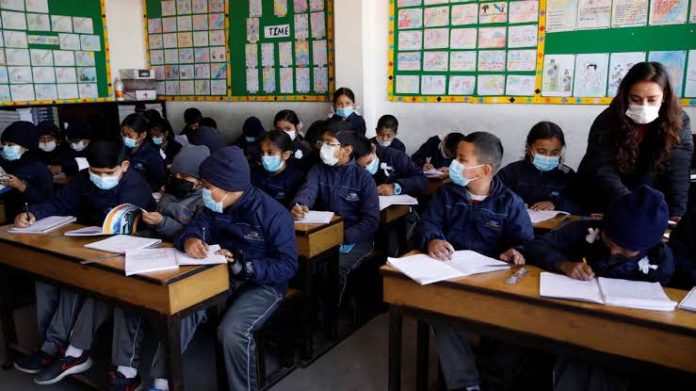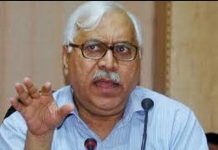Dr. Mohammad Najeeb Qasmi siyasat.net
The central government has announced Unlock phase 4. Even in this phase, all educational institutions in the country will remain closed till September 30. Only online classes will continue. Whether the educational institutions will open in October or not, it will be decided by the end of September. The lockdown in India has started since March 2020. It has severely affected educational activities. Students in universities, colleges and schools are forced to stay at home. Online classes are compensating for their educational losses to some extent, but the recent experiences have shown that online classes are useful for only professional courses. Schools’ children do not benefit much from the online classes. But it is still important to continue online classes, rather than shutting down the education system completely. Getting something is better than getting nothing at all. It will somehow help to save a complete year from being wasted. If the online classes are suspended and the children are made to cut off from their education, they will surely lose their skills. In the current situation, there is no other solution. Although efforts are being made to save the year from zero through online classes in universities, colleges and schools, the same facilities of online classes have not yet been arranged in Islamic Madarsas. In the current scenario, the Madarsas’ administration also should have taken advantage of the new technology and should have used online classes system to continue the educational activities.
Assessing the situation at the early stage of the lockdown, I suggested the officials of the Islamic Madarsas to start online classes so that the children could stay connected with education. Nadwatul Ulama Lucknow, although very late, has started online classes followed by some other Madarsas. The officials of Darul Uloom Waqf Deoband have also decided to hold online classes. Other Madrasas too need to pay attention to this, so that the students’ academic year is not spoiled totally.
The Madrasa officials generally cite excuse that most of the Madarsas’ students do not have a smartphone. The fact is that more mobile numbers are currently in use than the world’s population, as there are more than 8 billion registered mobile numbers in the world. The population is still less than 8 billion. Given the ratio of population, it can be assumed that a mobile number is generated and registered before a child is born. Currently, there are about 4 billion smartphones in the world, which is more than 50% of the world’s population. India, a country of 130 million people, has about 600 million smartphones. This led us to assume that there are very few households that do not have a single smartphone. The use of smartphones is increasing day by day and will continue to increase. One can refer to Google for getting more information. Therefore, to say that most students do not have smartphone is to deny the ground realities. And even if we accept this, why at least those who have the facilities should be deprived? Another excuse cited by the Madarsa officials is that smartphones spoil the society; therefore they do not urge their students to use smartphones. The question is whether the misuse of smartphones can be prevented by not starting online classes in Madrasas? The bottom line is that we can no longer stop the new generation from using smartphones. They can be prevented from misuse of mobiles by engaging them in online classes.
Medical experts around the world say that this disease existed since long back. No treatment has been detected yet, and it will take a long time to discover a medicine or vaccine to control it. The disease can recur once or twice. For this reason, it is also possible that the effect of this disease will remain for the whole year. Of course, we believe that this epidemic cannot be eradicated without the will of Allah. Let us not panic or despair. More dangerous epidemics have spread in this world earlier, finally one day we got rid of them. Insha Allah, this epidemic will also end one day. But we must also think about the ground realities. Therefore, I urge the officials of all the major Madrasas to start online classes in a more systematic way like universities, colleges and schools using the new technology. Of course, there may be some difficulties, but we Muslims are not afraid of difficulties. We are always prepared to face all the difficulties. In Madrasas of the Indian subcontinent, the admission of new students begins at the beginning of the month of Shawwal and the academic year begins immediately thereafter. Now, if it is not easy to arrange entrance exams for new students due to lack of time. But at least they can start online classes immediately for old students after training the staff members in new technology. Free programs are available online for online classes which can also be used. But for security you can also buy some programs for online classes, one of the main benefits of which is that the classes will continue without the hindrance of regular advertisements. If it is difficult to start regular online classes at the moment, at least create a WhatsApp group for each class and make a daily video and upload it to the WhatsApp group, so that students can benefit from it at their own convenience. Almost all textbooks are also available for free download on various websites. These textbooks should also be uploaded on the websites of more Madrasas so that students can use them at home. Scholars who do not want to make their own video, should turn the camera towards the book and read it, so that the students can easily understand the lesson of the book from the voice of the teacher. I have also started a series of similar online classes at my school Al-Noor Public School in Sambhal. Most of the children are using these online classes. There is no doubt that these online classes cannot be a substitute for real schools because they do not train children and do not have a special relationship between students and teachers, but at the moment we have no other choice. That is why I urge the scholars to start online classes in situations like lockdown so that students can read books to some extent, just as scholars have started resorting to social media for preaching and advising over the years. Just like the educational resources have changed drastically in the last thirty years from plaques, bamboo pens and inks have now been replaced by copies and ball pens, the same way books will be replaced with laptops, tabs, mobiles, internet and modern classrooms in the future.
(www.siyasat.net is Ahmedabad,Gujarat, india based Website)

































